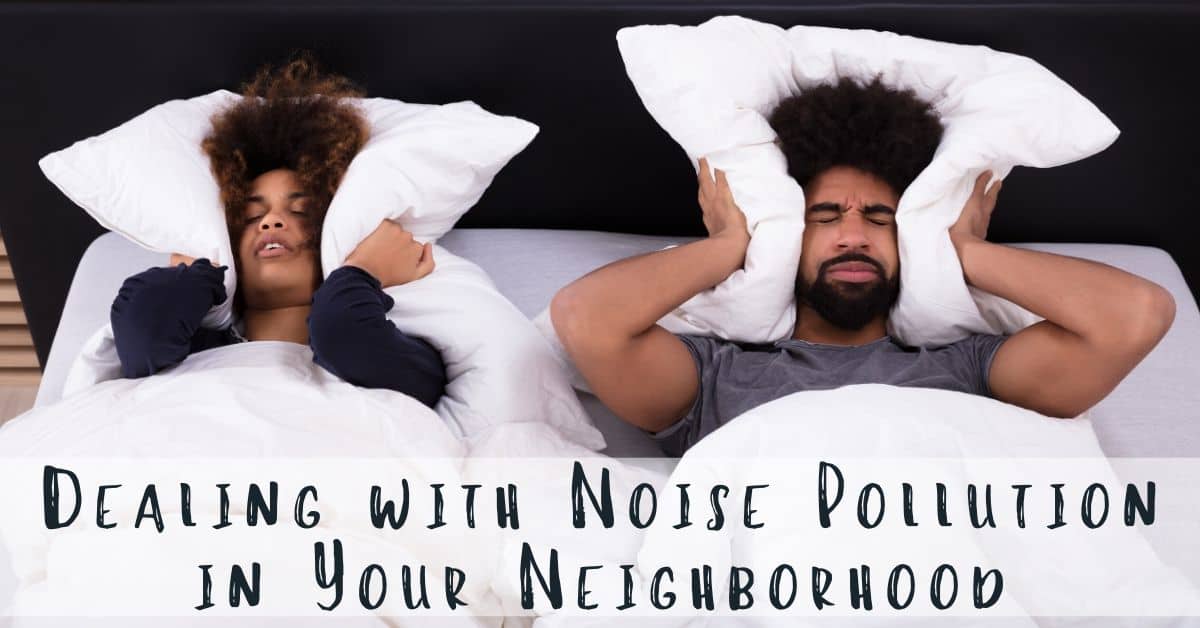- The Hidden Dangers of Everyday Noise and How to Stay Safe - April 9, 2025
- World Hearing Day Serves as a Reminder to Prioritize Hearing Aid Maintenance - March 3, 2025
- Don’t Let Hearing Loss Hold You Back from Deep Conversations - February 7, 2025
Almost everyone has had the experience of being annoyed by noise. Car horns, dogs barking, children yelling, loud trucks, sirens, the list goes on and on. The name we give to these unwanted sounds is “noise pollution,” and the title is appropriate. Beyond being annoying, noise pollution can have damaging health effects, the same as chemical pollution. And if your house or apartment is located in a noisy neighborhood, you’ll know how difficult it can be to escape noise pollution firsthand.
How Much Noise Is Too Much?
While it takes about 115 dBA (decibels A-weighted; a measure of ambient sound level) to cause pain in your ears, it only takes 85 dBA, over repeated or extended exposure, to cause hearing loss. For reference, 115 dBA is about the loudness of a car engine accelerating without a muffler, and 85 dBA is about the loudness of a lawnmower. So, if your neighborhood is particularly noisy, spending a day at home with your window open to the street could cause hearing loss!
In addition to hearing loss, a noisy neighborhood can increase your stress levels. This will elevate the cortisol (stress hormone) levels in your blood, wreaking havoc on your immune system and your ability to sleep soundly. Over time, you’ll experience pain and fatigue, your performance at work or school can suffer, you could develop high blood pressure or other cardiovascular issues, and some people might have speech difficulties.
About one in eight people over 12 years old in the United States has some degree of hearing loss in both ears. It is increasingly common for teenagers to experience some amount of hearing loss due to the increase in noise that bombards us in our modern society. When the problems with noise cannot be avoided even in our own homes, it is time to take action.
How Can We Limit Neighborhood Noise?
There are things we can do to reduce noise levels in our homes. We can limit stereo and television use and keep them at lower volumes. If we have laundry machines, we can get anti-vibration pads to help make them quieter. Preventing outside noise from coming in is a little trickier. We have minimal control over what kinds of activities go on outside our homes: we can’t ask the ambulances not to use their sirens.
Bring up excessive noise issues with your neighborhood association. There may be things that can be done to try to reduce outside noise. Adding speed bumps can help, as can prohibiting trucks from using your street as a throughway. If your neighborhood association is active in planning events, altering the locations of some of them or rescheduling might be a possibility.
Reducing Sound Levels at Home
More than likely, you’ll need to do what you can in your own home to limit incoming noise and prevent hearing loss and other health concerns from dominating your life.
It is helpful to have a carpet on the ground, which will absorb some noise and reduce reflected sound from the floor. You might also look into so-called “blackout” curtains, which have sound level reduction properties as well as light elimination properties. While it might not be reasonable to curtain off all of your windows and spend your days in the dark, the curtains can be drawn at times when noise is excessive, and opened when noise levels are acceptable.
If blackout curtains are not enough, soundproof windows are available, but these are costly and need to be installed by a qualified professional contractor. You might consider window plugs, but these will block all light out of your windows, and when not in use they will take up more space than curtains.
Another approach to reducing the effects of noise in your home is wearing earplugs or earmuffs. While this might not be comfortable all the time, it will be an effective solution at peak noise hours to protect your hearing.
Once hearing ability starts to decline, it doesn’t reverse. Hearing aids are a great way to maintain your ability to use your ears, but the very best solution is to prevent hearing loss in the first place. Take stock of your neighborhood’s noise levels. There are apps available for smartphones that can measure sound levels. Download one and see if the noise around your home is above 80 dBA on a regular basis. If so, it will be worth it in the long run to take steps now to reduce the amount of noise that reaches your ears.

